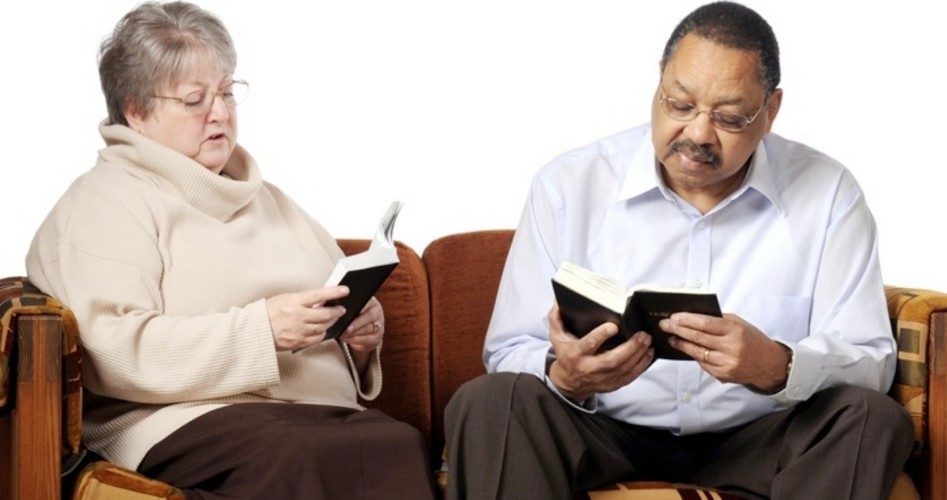
A senior citizens housing complex in suburban Minneapolis is under fire after a staff social worker barred a woman resident from praying or discussing her Christian faith in the the building’s commons area.
Ruth Sweats, a resident of Osborne Apartments in Spring Lake Park, was reportedly sitting in the commons area of the complex discussing a Bible passage with a friend, when the building’s social worker, Rachelle Henkle, stepped into the scene and demanded that she stop. Sweats told World Net Daily that she and her friend were discussing the book of Revelation, specifically the passage that speaks about those who take the “mark of the beast,” when Henkle walked up to the two and declared dramatically, “You can’t talk like that here!”
When Sweats pointed out that her right to free speech was protected by the First Amendment of the Constitution, Henkle countered that such rights did not apply at the housing complex since it was funded by the federal department of Housing and Urban Development (HUD), making it a religion-free zone.
Sweats promptly contacted Alliance Defending Freedom (ADF), a conservative legal advocacy group, which responded with a letter to the managers of the complex explaining that Sweats was well within her First Amendment-guaranteed rights. The First Amendment’s Establishment Clause “is a restriction on government, not on private speakers,” explained ADL legal counsel Matt Sharp in the letter. “Because Osborne Apartments is a private, non-profit corporation — not a government controlled entity — it is not bound by the Establishment Clause’s prohibition on the government endorsement of religion. Indeed, Osborne Apartments is free to allow the residents to engage in religious discussion and prayer.”
The website for the apartment complex states that it is a “tax-exempt, non-profit organization … managed by Ebenezer, which has provided quality services for older adults since 1917.”
Sharp recalled that over ten years ago then-HUD Secretary Mel Martinez publicly affirmed that it was not his department’s policy to ban religious expression in facilities that it funded, and to do so was a possible violation of the religious expression rights of those using such facilities.
Sharp added that Martinez even affirmed that faith-based organizations in the community were within their rights to make use of HUD-funded facilities. Emphasized Martinez in a memo on the issue: “… to the extent the common areas and meeting rooms are made available to any organization for the purpose of conducting residential programs, faith-based organizations may not be denied the equal right of access because of their religious character. To do so is to engage in viewpoint discrimination, in violation of the free speech rights of the organization – and perhaps the religious exercise rights of the residents as well.”
Wrote Sharp: “Simply because the government provides a benefit with public funds does not mean that all ‘mention of religion or prayer’ must be whitewashed from the use of the benefit.”
He concluded his gentle missive to the apartment’s managers by recommending that the “right thing to do out of respect for the senior citizens — many of whom fought or saw their spouses fight in wars to defend our nation and the freedoms upon which it is built — is to remove the ban on religious expression in the commons area….”
In a statement to reporters Sharp said that “government funding should not be misused to ban a widow’s prayers. The private decision of senior citizens to discuss their faith, read the Bible, and pray is private speech, and no law requires this privately owned independent living facility to restrict the religious expression of these members of America’s greatest generation.”
Sharp told the Christian Post that the incident is not the first time the ADF has had to confront First Amendment violations at senior citizen housing facilities. “In fact, just a few months ago, we helped a senior citizen who was told that she and other seniors could not pray over their meals at a local senior center,” Sharp recalled. “We have been involved in several similar situations where a housing complex or senior center was under the mistaken belief that it must censor prayer or religious expression by senior citizens at the facility simply because the facility receives government aid.”
A spokesperson for Ebenezer Management Services offered a statement on the conflict between Ruth Sweats and Osborne Apartments, emphasizing that “we do not restrict expressions of faith in our communities. Residents host Bible studies, one-on-one conversations, hymn sings, and other religious activities in the communities.” She added, however, that the housing staff “will step in when residents are being hostile or intimidating to other residents, no matter what the topic of conversation.”
World Net Daily reported that a spokesperson for the apartment complex “would not identify if what Sweats was reading could be considered ‘hostile or intimidating.’ ”
As of this report, Ebenezer had not responded to the letter from ADF on behalf of Sweats, but Sharp expressed his hope that his explanation would clear up the issue and prompt the apartment’s management to do away with its “terrible policy.”
Photo: A senior man and woman studying the Bible together on a sofa via Shutterstock


